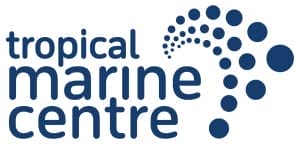Project Coral
In 2013 Project Coral ‘cracked the code’ of predictable spawning of broadcast corals in a lab environment. The methodology and research were published as open source, enabling others to use Project Coral’s pioneering techniques.
Since then, Project Coral has worked with academic institutions and aquariums around the world. Its coral husbandry protocols and research continue to be the catalyst and inspiration for projects that will improve the survival chances and resilience of corals to climate change. And Project Coral’s research continues at the Horniman, behind the scenes in the Aquarium.
Project Coral is led by Dr Jamie Craggs, Principal Aquarium Curator at the Horniman Museum and Gardens.
Media enquiries
- press@horniman.ac.uk
- 020 8291 8166
Why is Project Coral needed?
Coral reefs are incredibly diverse habitats. One square metre of coral reef contains as many different types of animals (genera) as a whole hectare of Amazon rainforest.
They also support millions of people through food security, coastal protection and income through tourism.
But coral reefs are under threat. Human activities like pollution, overfishing and climate change mean we are losing coral reefs at an alarming rate.
Understanding coral reproduction and how reefs naturally rebuild themselves is key to understanding how we can help preserve and restore coral reefs – and that’s where Project Coral comes in.
In the wild, most corals reproduce over only one or two nights a year during a mass spawning event, dependent on the right climatic conditions, temperature and phases of the moon. This means opportunities to study coral reproduction have been limited.
Project Coral is changing that. Replicating those environmental conditions in a laboratory setting means we can now induce corals to spawn. And sharing our research with other institutions means we’re opening up more and more avenues of research into coral reproduction, across multiple coral species and around the world.
Latest news
- In October 2024, threatened native species Eunicella verrucosa, the Pink Sea Fan, reproduced at the Horniman, the first time this has been achieved in a UK institution.
- Project Coral was a partner in a study, published in October 2024, showing that selective breeding can lead to a modest rise in coral heat tolerance.
Current focus of Project Coral research at the Horniman
The Horniman Aquarium is the only institution in the world to be studying corals from five geographical areas in one lab – Australia, Fiji, the Indian Ocean, Singapore and the UK.
Research projects based around the late 2024 spawning include looking at cross-fertilisation between different geographic groups, and studying the role played by coral fluorescence in attracting food.
The Project Coral team is currently working with five PhD students from three different universities, researching:
- the spawning range of Pink Sea Fans
- transcriptomics (how genes produce proteins in response to stimuli) of juvenile sea urchins
- and the sexual reproduction of large polyp stony corals.
Project Coral is also working with PICRIC (Palau International Coral Reef Centre) and Coral Assist, on a project to investigate co-culturing corals with edible species of sea urchins, promising opportunities for both reef restoration and food / tourism on the island.
The Horniman Project Coral team is collaborating with the Tropical Marine Centre on coral-spawning research to support coral species conservation and reef-restoration efforts. Through this partnership, we will document the reproductive behaviour of species from a broad range of geographical habitats and use cryopreservation techniques to create a long-term biobank of genetic material to aid in species conservation.
Previous successes
Rearing juvenile sea urchins alongside lab-spawned corals has become a regular feature of Project Coral’s work, since its research in 2019 proved this co-culturing produced an eight-times-higher survival rate in young corals.
In 2016, Project Coral celebrated a survival rate of its lab-spawned corals of well over 1,000 times greater than in the wild. From 130,000 eggs released during the 2015 spawning event, cross fertilisation created thousands of free-floating larvae, of which around 180 were growing well a year on – a 0.14% survival rate (from egg to growing coral). Scientists estimate that only one in a million eggs released during wild spawning events will survive to become an adult coral.
Real world impacts
Florida Aquarium’s Center for Conservation (CFC) is the largest land-based Caribbean coral archive and research facility in the world. The 22-acre site in Tampa Bay, Florida has four systems replicating Project Coral’s protocols and, since 2018, has achieved multiple spawnings of staghorn coral (Acropora cervicornis), endangered Atlantic pillar coral (Dendrogyra cylindrus) and maze coral (Meandrina meandrites). This has resulted in thousands of lab-spawned coral being planted into the ocean to repair damage along the Florida Reef Tract, along with publications sharing CFC’s work.
Coral Spawning International (CSI) (formally Coral Spawning Lab) is an independent company co-founded by Dr Jamie Craggs specialising in the design and construction of coral spawning research systems, to facilitate reef restoration and research. This enables organisations to implement Project Coral’s protocols and reproduce corals independently. Since 2020, sent over 80 systems have been sent to 19 institutions across 12 countries, including government departments, universities, NGOs, and private resorts. In 2022, this effort was awarded the MSC Foundation SeAct Award for Innovation in scaling up coral reef restoration.
Alongside continuing to lead Project Coral at the Horniman, Jamie Craggs has also taken on an additional role as Senior Marine Scientist at Mars Sustainable Solutions, where he’ll be working towards implementing coral reproduction techniques at reef restoration sites worldwide.
Support Project Coral
From our tiny lab in south London, Project Coral is having a huge impact around the world. But we need your help.
Project Coral depends on the support of individuals and partners to carry out this vital work. Donate now to help us preserve our coral reefs.
- £20 could purchase a pack of water-testing kits, essential for maintaining a healthy environment for our corals.
- £50 can help buy equipment like temperature probes or chemical elements crucial to creating reef-like conditions in our London tanks.
We are constantly striving to push the boundaries of what is possible in our research behind the scenes. Please consider supporting our work long term to help us conduct essential research into coral reproduction and work collaboratively with researchers to support coral reef conservation efforts.
- A monthly or regular donation of £20 can support our collaborative efforts with laboratories and research teams across the world.
- A generous £50 a month will help to progress this research from the lab to the ocean and save our coral reefs.
If you’re interested in corporate sponsorship or partnering with Project Coral, please contact fundraising@horniman.ac.uk.








